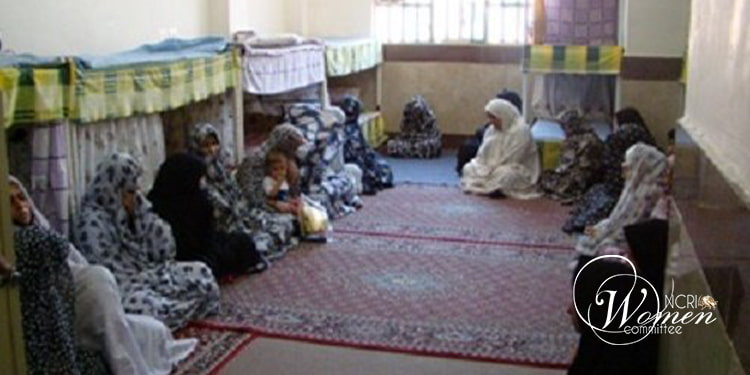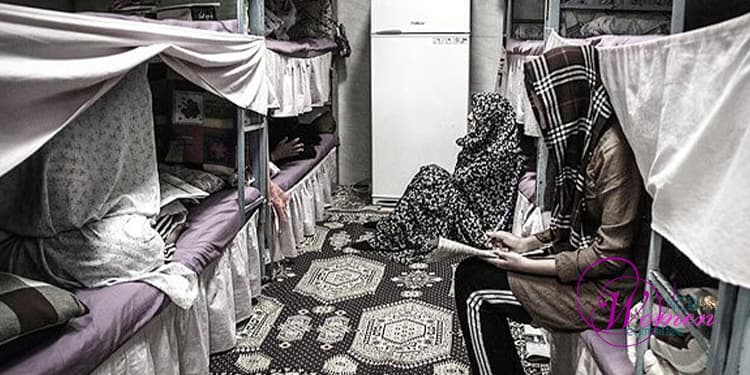Adelabad Prison that is also known as the Central Prison of Shiraz is one of the largest detention facilities in Iran. In recent years, it has become a symbol of systemic human rights abuses and violations of human dignity, particularly in its women’s ward.
Severe overcrowding, unsanitary conditions, denial of medical care, and widespread psychological pressure have created a critical situation for female prisoners.
Overcrowding and Violation of Prisoner Classification
The women’s ward of Adelabad Prison consists of eight rooms, with only one designated for financial and political prisoners. Currently, political detainees are housed alongside those convicted of common or financial crimes, an explicit violation of the principle of separating prisoners by offense and a grave threat to their safety.
In some rooms, more than 40 women are crammed into spaces built for half that capacity. A shortage of beds has forced many to sleep on the floor, while poor ventilation has turned the ward into a breeding ground for infectious and skin diseases.
Restricted Outdoor Access and Daily Pressures
Female prisoners are granted limited and irregular access to outdoor exercise. These periods are often arbitrarily reduced or canceled altogether, depriving women of physical activity and fresh air, factors that severely damage both their physical and mental health.

Cultural Deprivation and Book Censorship
The ward’s library is effectively dysfunctional. Access to books is heavily restricted, with many educational and political works outright banned. This policy serves as a tool of psychological repression, stripping women of their right to knowledge and education.
Medical Neglect and Death of Prisoners
One of the gravest issues in the women’s ward is the absence of effective medical services. Several women have died due to lack of care. A stark example is the death of a female inmate, Masoumi, in quarantine after being denied urgent treatment. It even took several hours to remove her lifeless body from the ward.
Prison doctors frequently downplay serious illnesses such as cancer or heart conditions, refusing hospital transfers. Chronic shortages of medication and systemic medical neglect place women under constant threat of losing their lives.
Corruption and a Public Health Crisis
Sanitary conditions in the ward are catastrophic. Food is often contaminated with foreign objects, drinking water is unsafe, ventilation is inadequate, and outbreaks of lice and fungal infections are widespread. Prisoners are forced to purchase cleaning supplies at their own expense, yet many lack the financial means to do so.

A Stark Contradiction: Drugs Allowed, Basic Goods Banned
Reports indicate that while ordinary goods such as coffee and cigarettes are prohibited for female prisoners, narcotics—including methadone and buprenorphine—are freely distributed. Other drugs also enter the prison with the complicity of some guards. This policy highlights structural corruption and the deliberate use of addiction as a means of control.
A Clear Violation of Human Rights
The conditions in the women’s ward of Adelabad Prison in Shiraz are a stark reflection of the clerical regime’s repressive and inhumane policies. Female prisoners are deprived not only of their most basic rights but are also subjected to daily physical and psychological pressures that place their lives in constant jeopardy.
This crisis underscores once again the urgent need for the international community and human rights organizations to closely monitor Iran’s prison system—particularly the dire situation of women in Adelabad Prison.
























